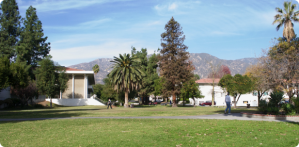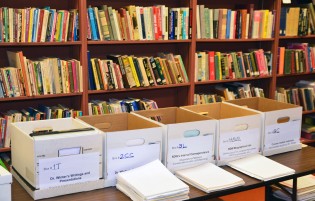Dr. Ralph Winter was a man of many ideas. This is what he was known for throughout his life by all who interacted with him. Sometimes he would write memos to himself in order to express his ideas in writing, as he did on March 12, 1985. As his initials were RDW for Ralph Dana Winter, the memo begins with TO: RDW and FROM: RDW. He is discussing the stewardship of the campus that the mission organization and international university he started are located on in Pasadena, California. He emphasizes that God desires the community on campus to be able to value the property, to understand it and to have purposes for it that advance the Kingdom of Heaven. Dr. Winter states, “I don’t see any reason why, once a month [the] auditorium…should not be absolutely packed with people interested in missions with a program that would [be] televised and shown all over the nation…We have that great big basketball floor [which is] just an ideal television studio floor and the entire auditorium could be a studio audience. It could be a time of tremendous inspiration that would [ripple] across the earth.”
Dr. Winter laments the fact that people in the community do not seem to be dreaming, praying, longing and reaching out for the world mission center that this campus was intended to be from even before Dr. and Mrs. Winter arrived. He says regarding the houses that surround the campus and belong to it that folks should be praying about whom they want to live in those houses. “What do we want those people to be doing? What is the [rental] income from these houses for?” he asks. Dr. Winter ponders whether God might be so disappointed with people’s dull hearts that it is too late for Him to give the property to them to be used for His purposes.
Another indication in this memo of Winter as the idea man is that he mentions that he has often thought of all the doctoral dissertations over the years that desperately need to be pursued and achieved but he has not gotten any of those ideas written down for various reasons. He reminds people that the battle of faith must be collective and not just individual. Dr. Winter compares the community to babes needing milk rather than adults needing meat! He was never one to shy away from stirring up people’s thinking and feeling with controversial topics to be contemplated and discussed.





